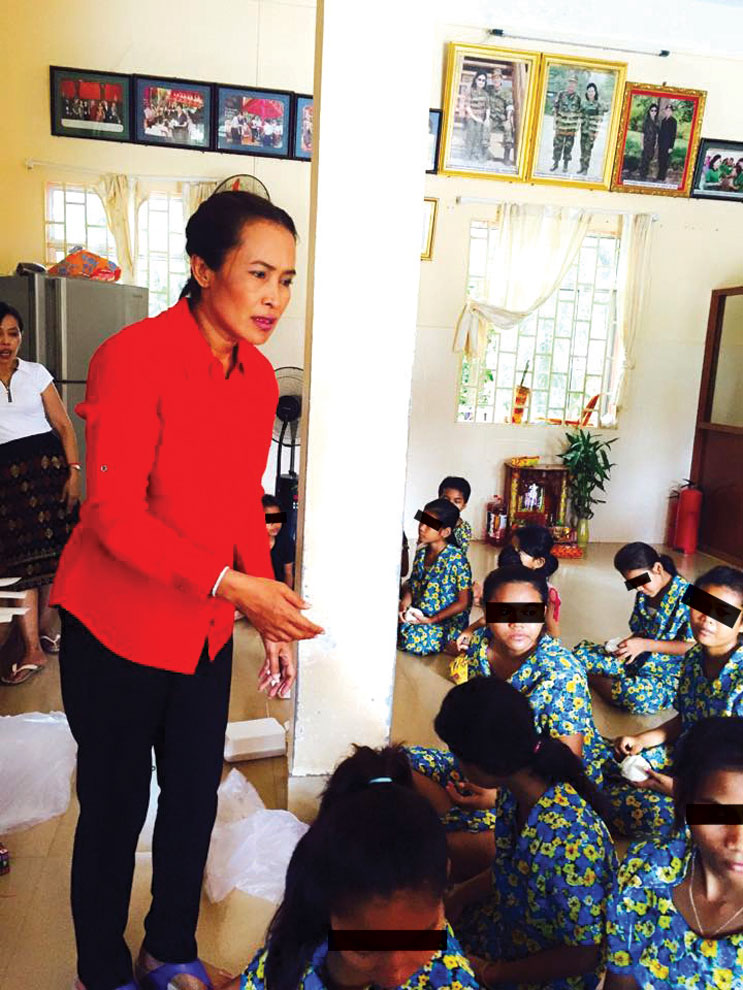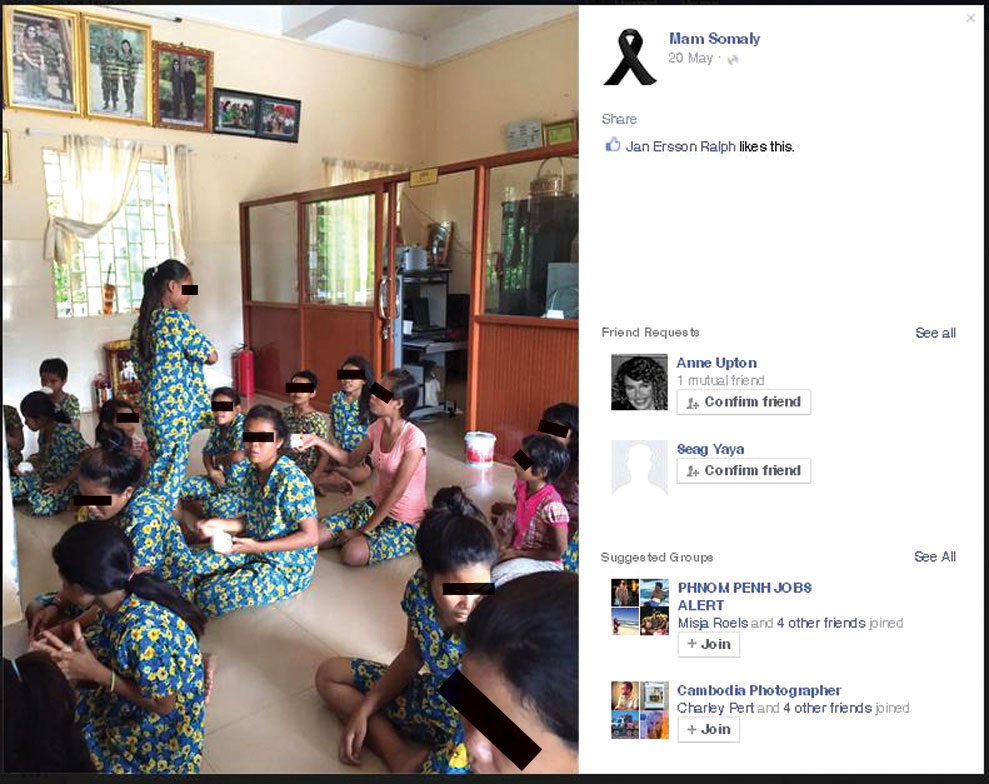A year after Somaly Mam was forced to quit her own foundation, concerns remain as she attempts to rise phoenix-like from the ashes
On May 28 last year, the internationally celebrated anti-sex trafficking activist Somaly Mam resigned from her eponymous foundation.
The much-publicised announcement came following investigations by Newsweek and lawyers hired by the foundation that suggested Mam may have fabricated her personal history of being sold to sex traffickers as a child, and coached other women who spoke on behalf of the organisation to do likewise.
Bereft of its charismatic leader and with its reputation in tatters, the Somaly Mam Foundation closed in October.
At the time, many believed that the damage to her personal reputation would be the end for Somaly Mam as a public figurehead. But 12 months on from her resignation, Mam, and organisations associated with her, have hardly slowed.
Along with supporters who remained loyal through the scandal, Mam this year co-founded The New Somaly Mam Foundation: Voices for Change (NSMF), which was registered as a charity in the US in February. NSMF is now actively recruiting donors in the US and elsewhere to carry on supporting the NGO’s on-the-ground work in Cambodia, which is carried out by AFESIP: another organisation founded by Mam in1996.

The ‘relationships’ page of the NSMF’s 2015 Business Plan. PHOTO SUPPLIED
But while it is the controversy surrounding Mam’s personal life and her phoenix-like new beginning that have captured public attention, concerns remain about the NGO’s operating practices on the ground.
A challenging time
In a rare interview with
Post Weekend this week, AFESIP’s program director Sao Chhoeurth said that the organisation had yet to close the funding gap left by SMF’s closure. “Right now, we’re just getting in more and more support, but it’s difficult to rebuild relationships,” he said.
Before the foundation was wound up, AFESIP’s stated activities included running three rehabilitation shelters for women and children who had been trafficked or were at risk of trafficking, working on educational outreach and providing medical assistance to sex workers.
Since SMF’s closure, one of the organisation’s three centres has shut, the medical services have been suspended and outreach activities have been scaled back drastically. About 70 per cent of AFESIP staff have lost their jobs.
Under the new arrangement, NSMF and AFESIP are managed as a single organisation, although, because of ongoing trouble registering as an NGO in Cambodia, they technically remain separate legal entities, which Chhoeurth admits is “confusing”.
With its rebirth, Chhoeurth said, has come a re-ordering of priorities: rather than focusing on the “rescue” of women from exploitative situations, NSMF’s focus is now on rehabilitation. “We need to secure what the victim needs, like training and education,” he explained. “They need to become economically independent.”

Somaly Mam’s organisations have benefited from the patronage of famous stars such as Susan Sarandon. AFP
NSMF has emphasised that one of the keys to rebuilding its resources is working in partnership with other reputable organisations, a move it hopes will restore public trust in the NGO following last year’s controversy.
“We cannot work alone, we have to work with other NGOs,” Chhoeurth said when asked about the policy.
In its 2015 Business Plan, a 19-page document that was circulated to at least one major donor in February of this year, NSMF said that it was building “credible relationships” with other NGOs to improve service provision to the women in its care.
It said such relationships currently existed with four organisations: CWCC (Cambodia Women’s Crisis Centre), CWDA (Cambodia Women’s Development Agency), CCPCR (The Cambodian Centre for the Protection of Children’s Rights) and TPO (the Transcultural Psychosocial Organisation Cambodia).
But when contacted by
Post Weekend this week, each of the four NGOs said they had no knowledge of a particular relationship with NSMF. None had had official contact within the past year or been consulted about their inclusion in the document.
When asked why the four organisations listed as having “credible relationships” with NSMF were not aware of their status, AFESIP’s Chhoeurth said NGOs might be looking to protect themselves from negative publicity. “Since we had the allegation about Somaly’s personal story, people started to move away from us, so it could be something like that,” he said.
Despite the business plan being written specifically for the launch of NSMF in 2015, he said the stated relationships may refer to partnerships that were “10 or 15 years old”, or to informal relationships that would only be known about by those working in the field.

Mam often fails to obscure the faces (covered here by Post Weekend) of the women in her NGO’s care. PHOTO SUPPLIED
Chhoeurth agreed that the NGOs listed had been included in the business plan because of the credibility they afforded to AFESIP but said it was not misleading.
“We need to work on [a] case by case basis, I cannot mention on any specifics,” he said, adding that the organisation had many other partners it had not listed in the business plan.
Chhoeurth also emphasised that despite the fact the business plan had been uploaded to a major donor’s website before being taken down and cross-posted on AFESIP’s own blog, it was an “internal document” and subject to change.
Rigmor Schneider, executive director of NSMF, said she would get in touch with CWCC, CWDA, CCPR and TPO to clarify the situation.
Gaps in provisions
When asked by
Post Weekend about informal relations over the course of the past year, representatives from CWDA, CCPCR and TPO said that, to the best of their knowledge, no such informal partnerships or cooperation on individual cases had occurred, although Nget Thy, executive director of CCPCR said he had been in contact with AFESIP staff concerning a bike donation from a mutual donor. He said the donation “was not related to AFESIP or SMF institutions”. CWCC did not respond to a request for further comment.
The apparent absence of even informal referrals to TPO over the past 12 months might be seen as a particular cause of concern, given Chhoeurth’s own admission that the number of psychologists at AFESIP’s centres has “not yet reached to the national standard”.
The organisation has one psychologist for its Siem Reap centre, and one for its Kampong Cham centre, which house 20 and 40 women and girls respectively. There is no overall manager, or additional psychologists dedicated to working with women who have reintegrated into the community.
According to TPO’s Dr Chhim Sotheara, while there is no official ratio in Cambodia for psychologist to patient ratios, no psychologist should work alone in a centre with so many clients.
“For centres that have 20 women, to at least have two psychologists would be good, while for the one with 40 women, at least three psychologists,” he said, adding that supervisors were also required to provide technical support to the psychologists.
Mixed mandate
While NSMF’s stated goal is to move away from “rescue” towards the rehabilitation of existing residents, the centre’s social media accounts have publicised a handful of new arrivals in 2015. The new residents announced online have all been child rape victims.
It is not clear how some of these cases, where the perpetrator has been a community outsider who has subsequently been arrested, fall under NSMF’s mandate of working with those who are trafficked, sexually exploited or in the “at risk” category for either.
Chhoeurth stated that in such cases, girls were at risk of being trafficked by virtue of the fact they had been raped.
“If the girl gets enough protection, she would not get raped, right?” he said.
But he added: “I do not just focus on the trafficking, I just focus on the situation where the woman and girl suffer and need our support.”
Critics who have in the past accused Somaly Mam of blurring the bounds of what constitutes trafficking, and of exaggerating its prevalence in Cambodia, do not support this argument.
Thomas Steinfatt, a statistician who has worked extensively on documenting sex trafficking in Southeast Asia and publicly questioned Mam’s statements about its pervasiveness, said that describing girls who had been raped as at significant risk of being trafficked was tenuous at best.
“His assertion is at best unsupported, though it could be true, but the incremental increase in the probability of being trafficked is not likely very high,” he said.
Schneider, executive director of NSMF, said that an upcoming review of the NGO’s website would help clarify its business practices with regards to whom it caters to in its shelters, but that there was no intention of expanding the organisation’s mandate to include situations other than trafficking and sexual exploitation.
“With a small organisation, lack of resources is an ongoing challenge,” she added.
“We are not moving forward as quickly as we would like to.”
PROTECTING THE CHILDREN
The need to protect the identity of women and children who are victims of human trafficking and sexual exploitation has been an ongoing issue for organisations associated with Somaly Mam, who critics have in the past accused of encouraging women to share intimate details of traumatic experiences without obtaining their fully informed consent.
While AFESIP now works to ensure that all images it uses to raise awareness of the organisation’s work show women with their faces and identifying information obscured unless they have obtained express permission to do otherwise, Mam herself still frequently shares pictures from her visits to AFESIP’s Siem Reap and Kampong Cham centres in which the faces of women and children are readily identifiable.
Although the images are shared on her personal accounts, they are publicly visible and often reposted elsewhere online.
Rigmor Schneider, executive director of NSMF, said that the organisation made “every effort” to protect the privacy of residents. “Over the years, photographs have slipped through for one reason or another.
“We can only say we try very hard to prevent that and correct issues as we become aware of them,” she said, adding that the internet made it especially hard to keep on top of image distribution.













